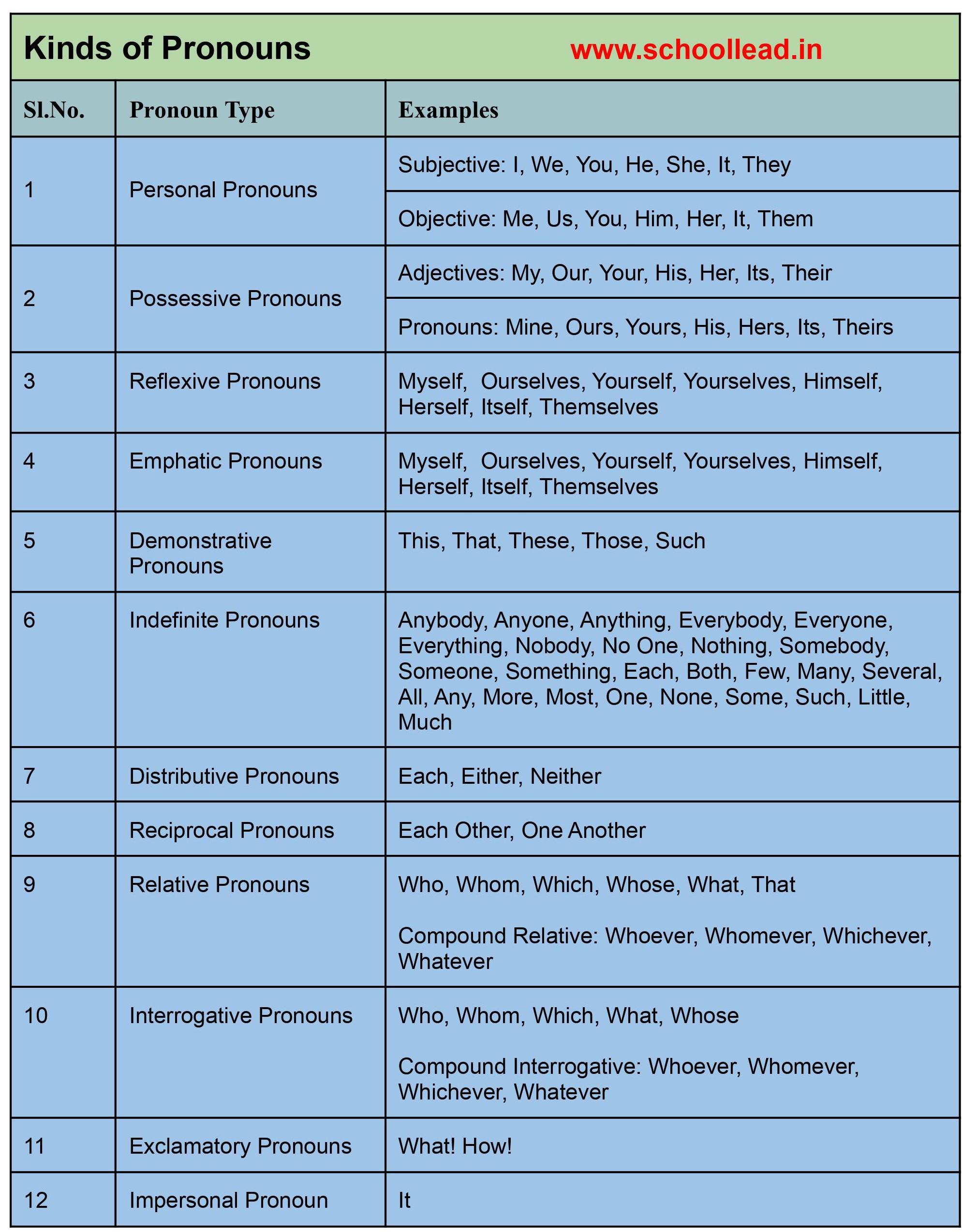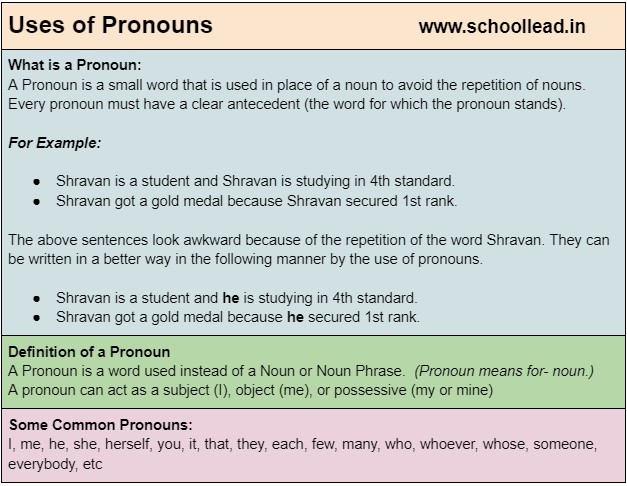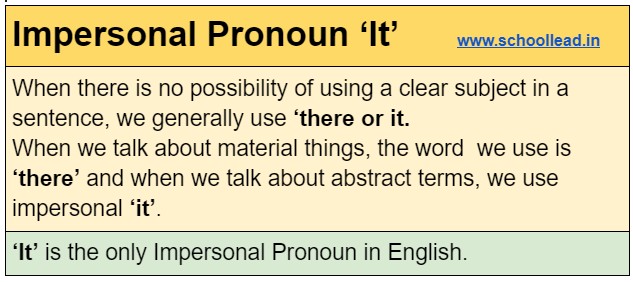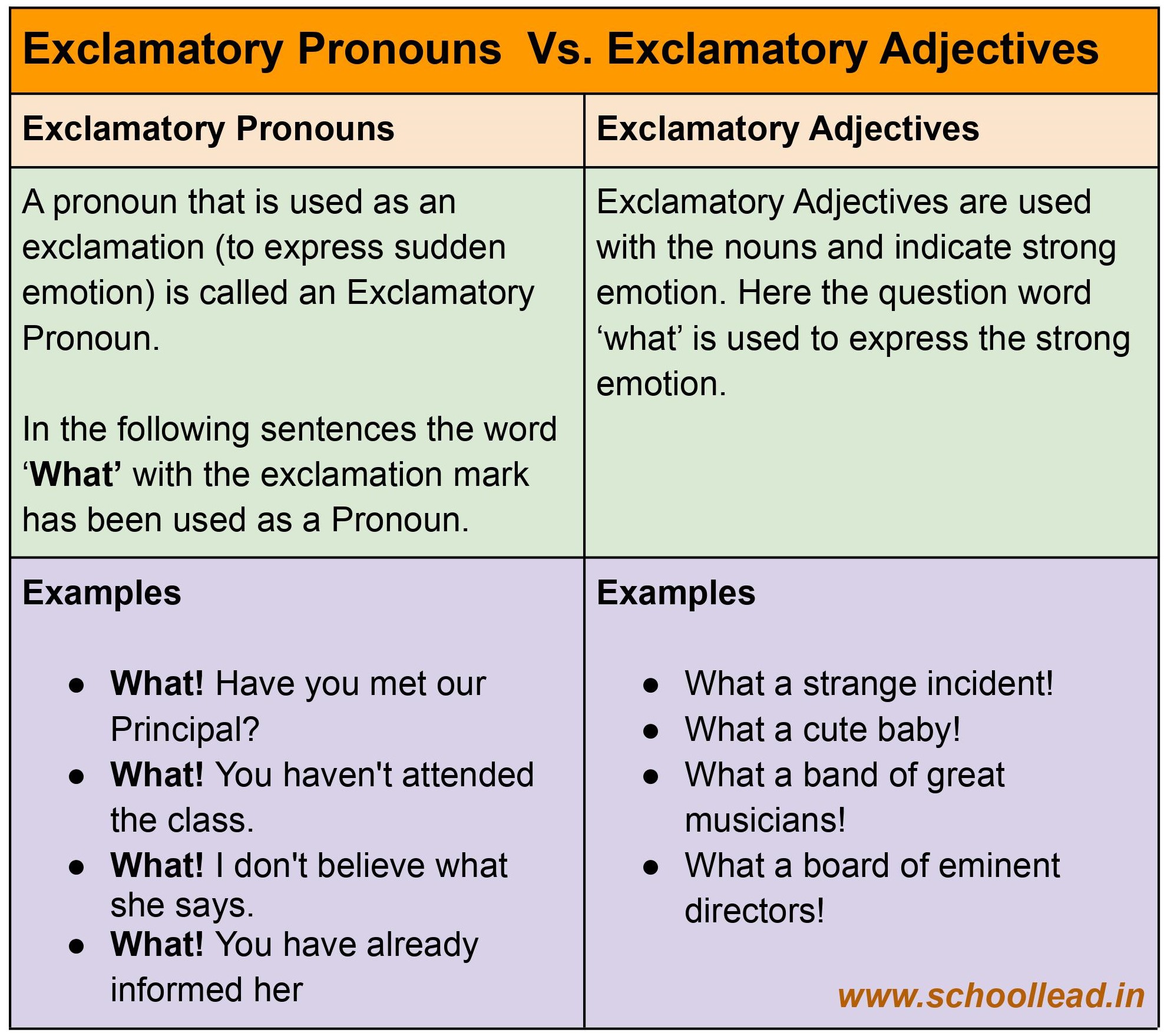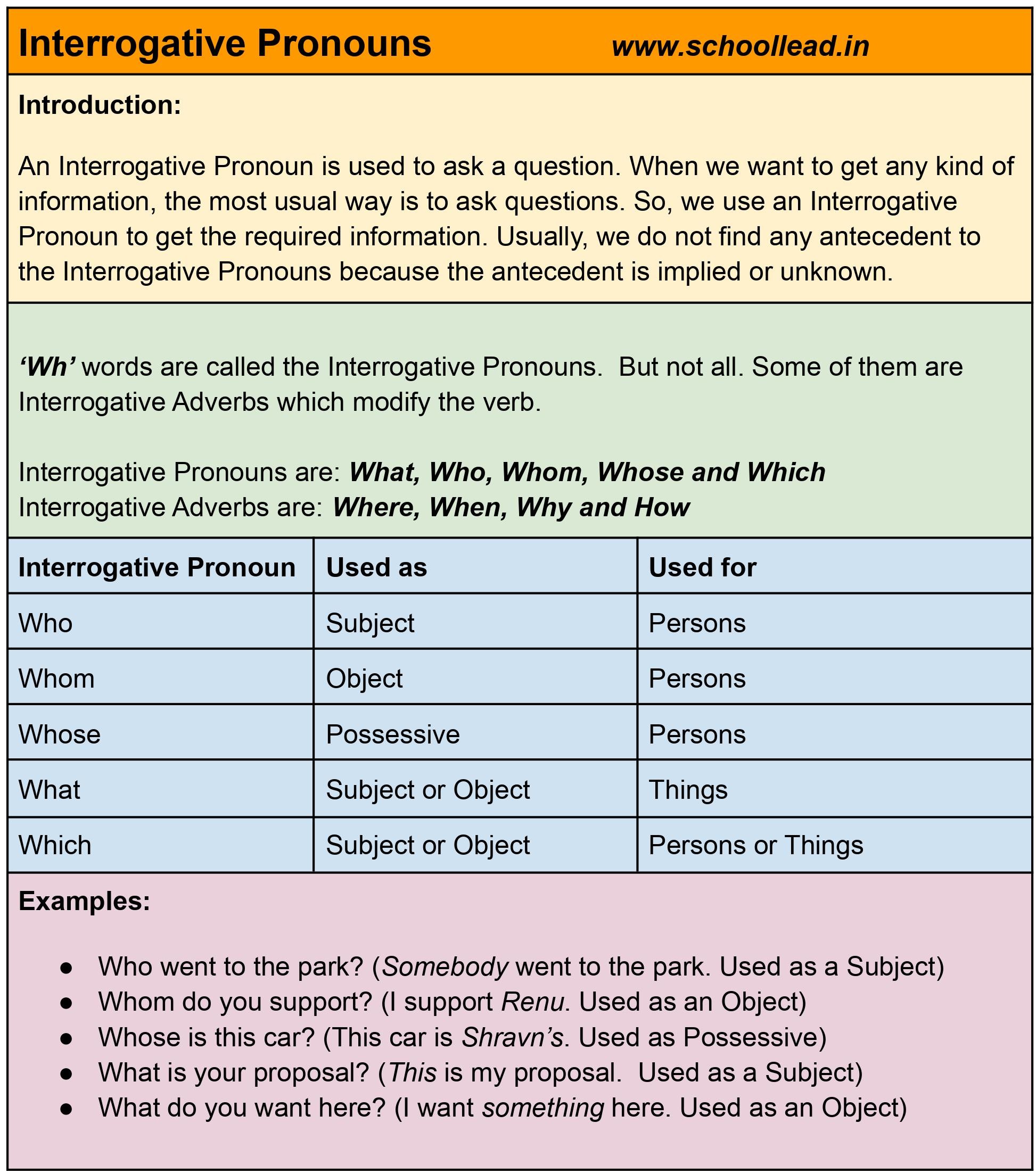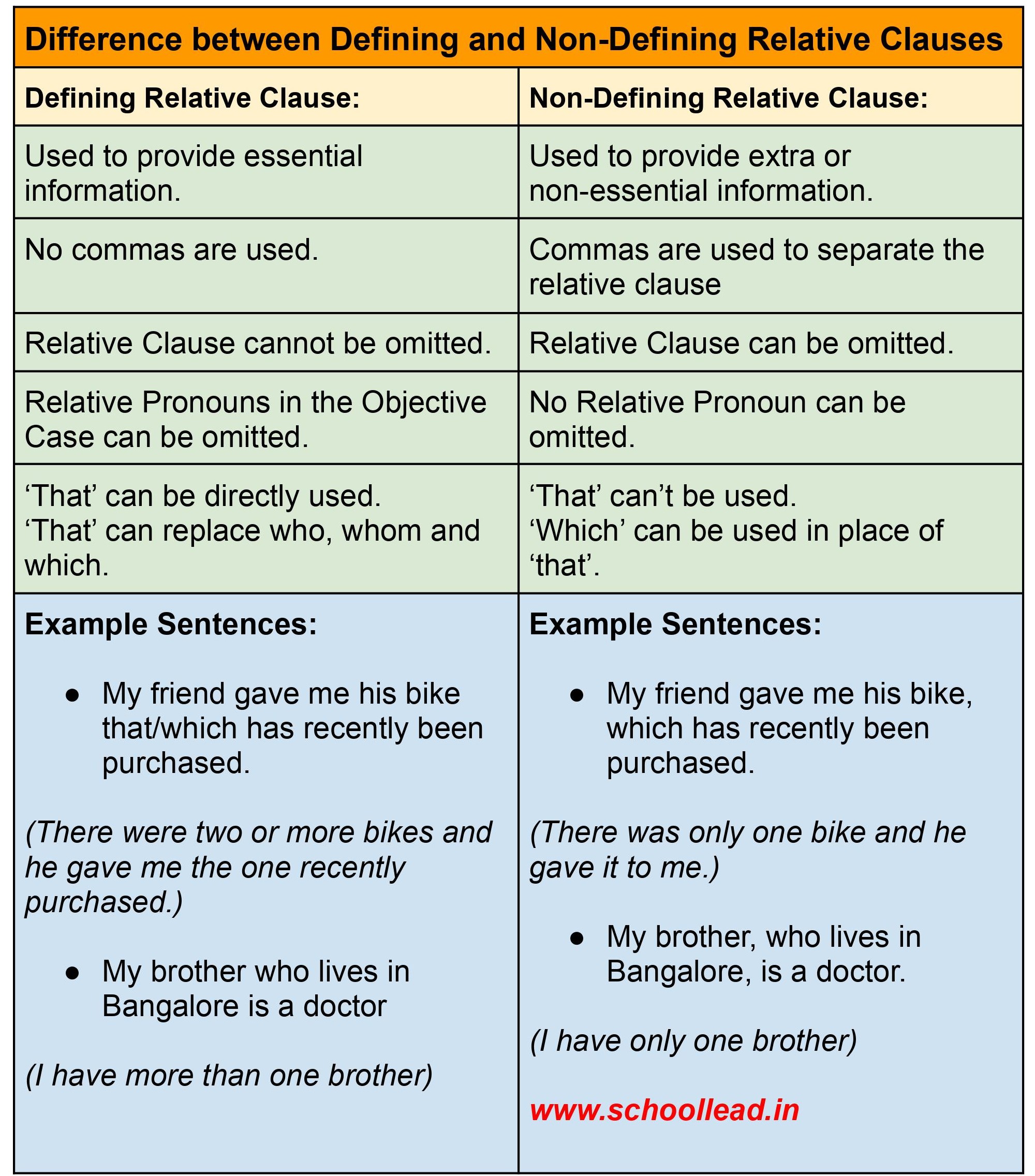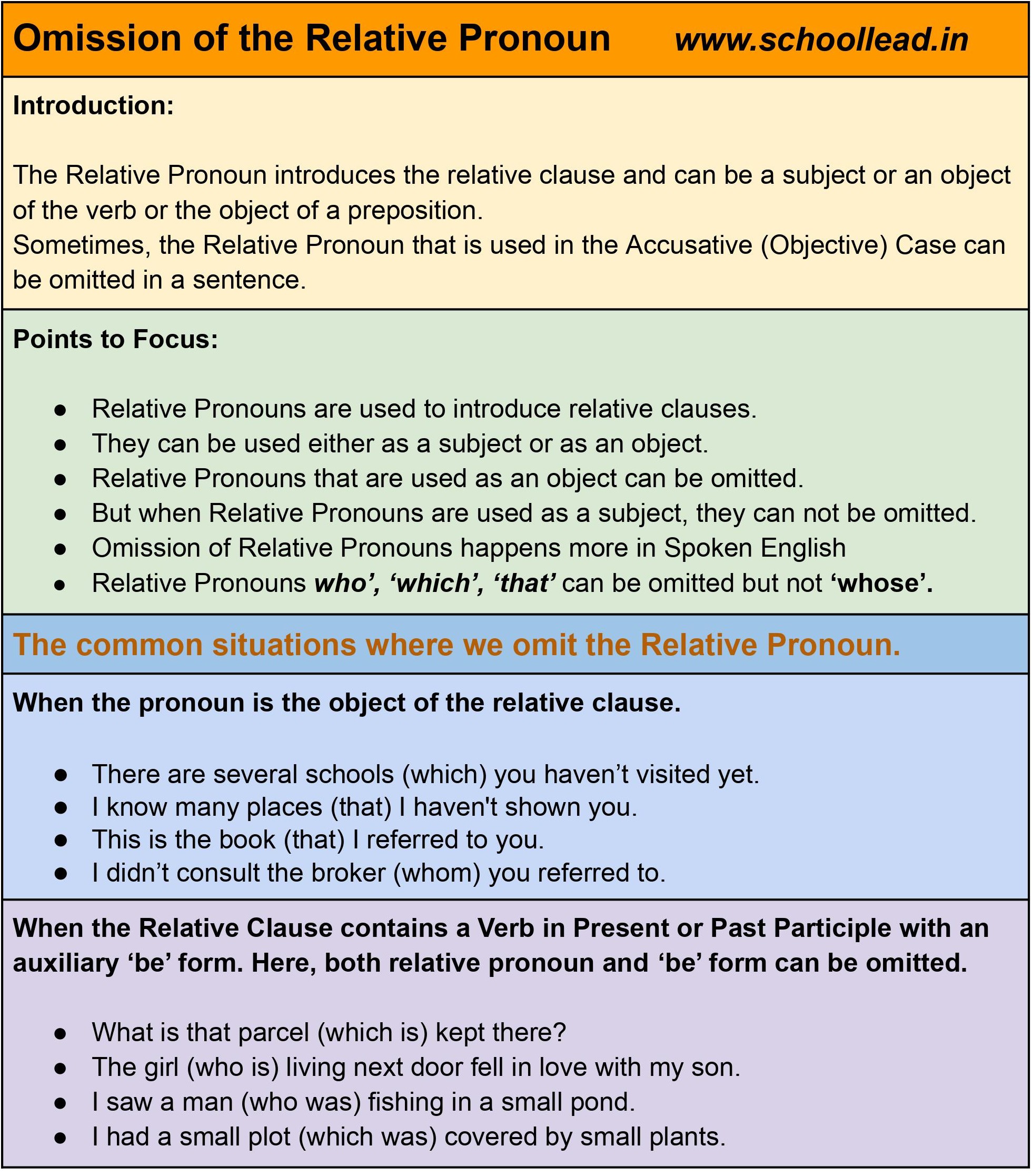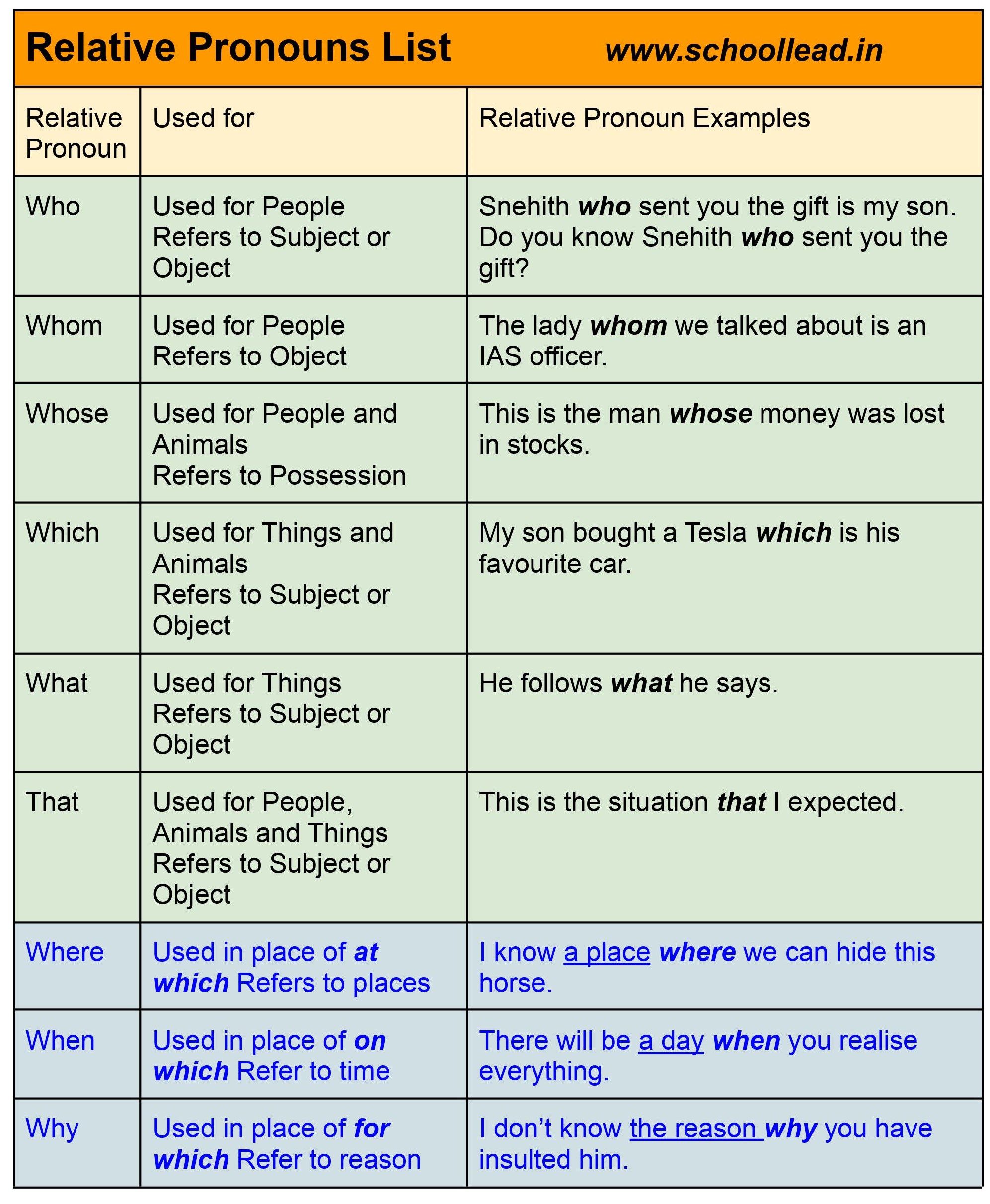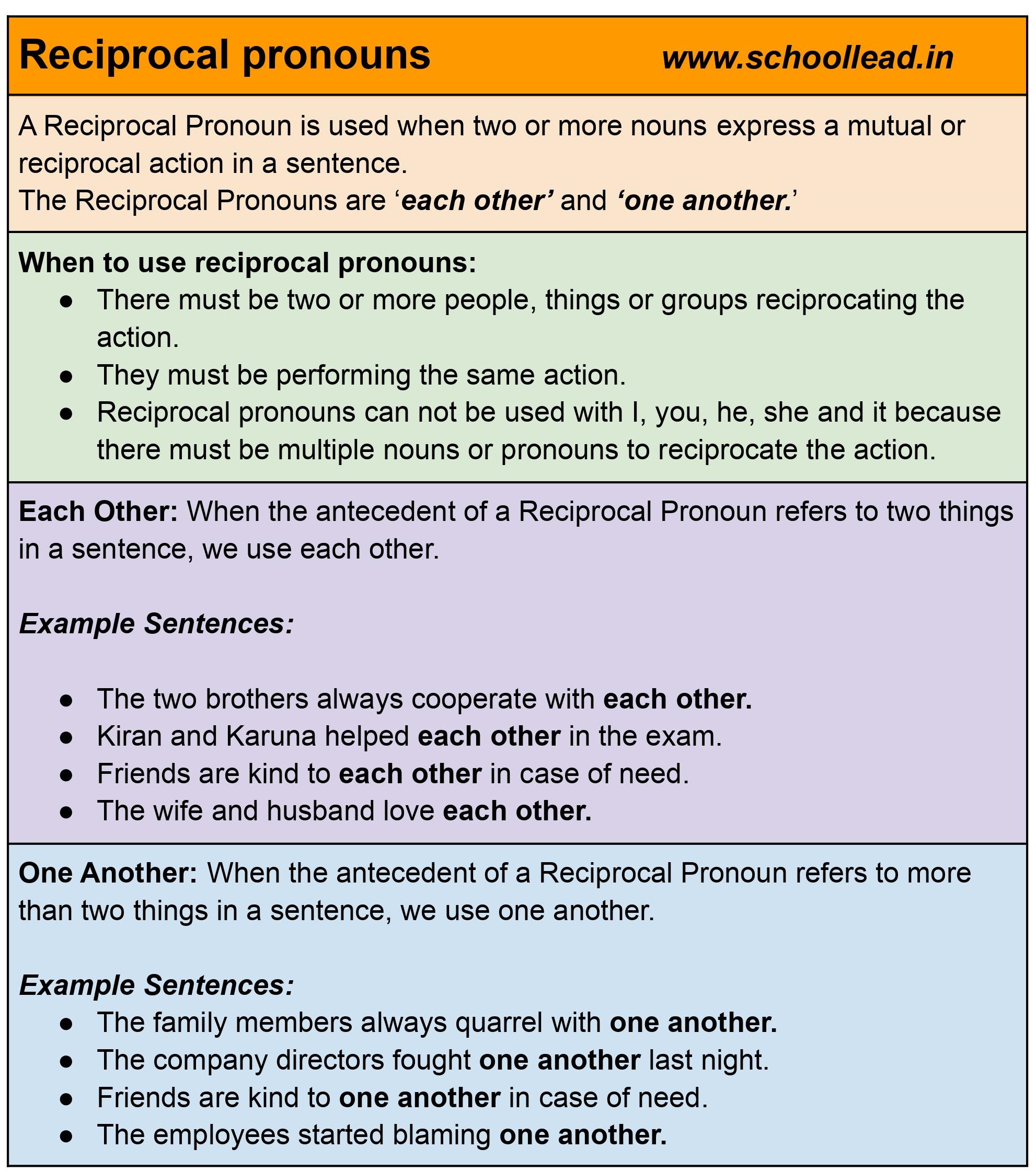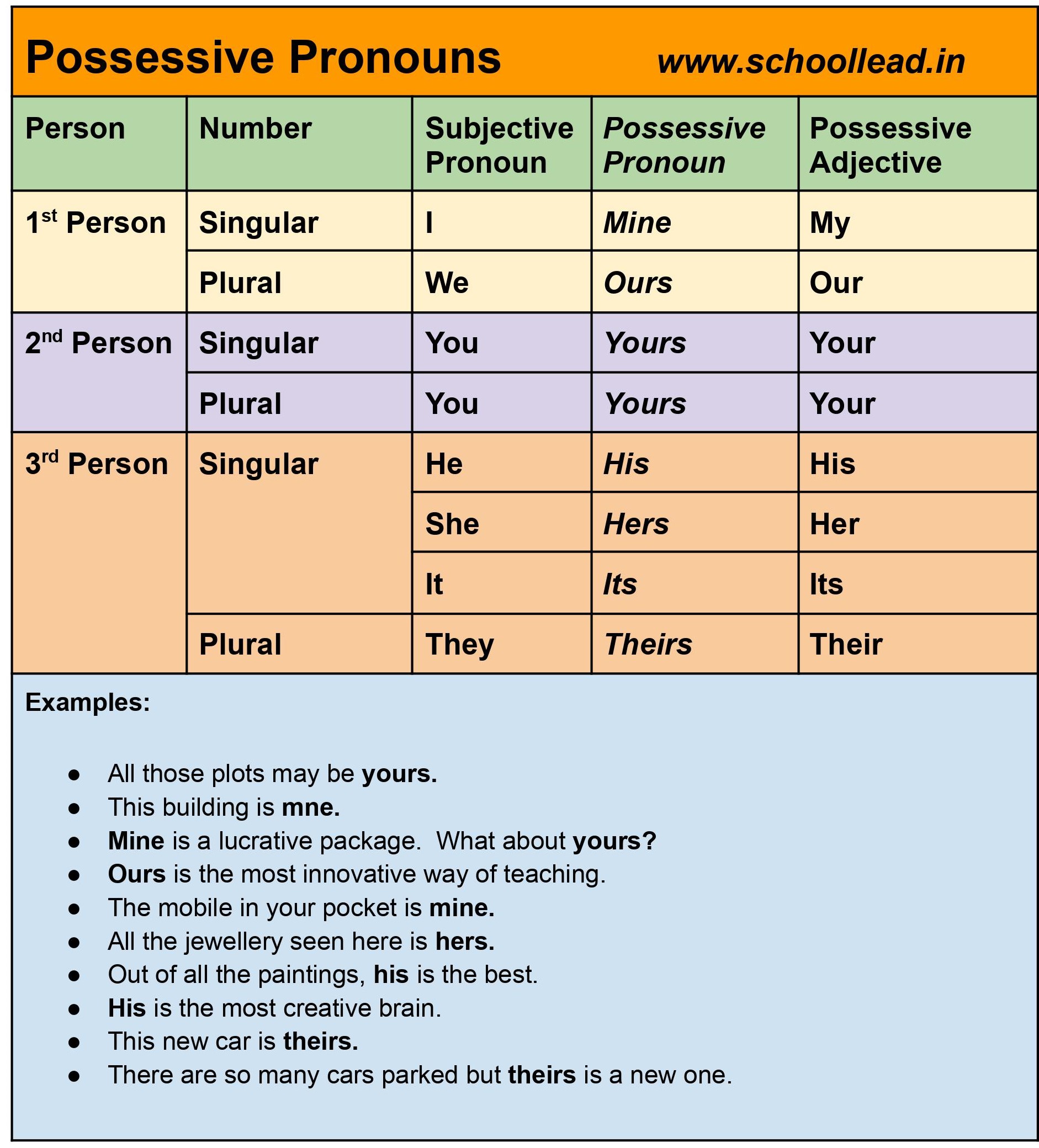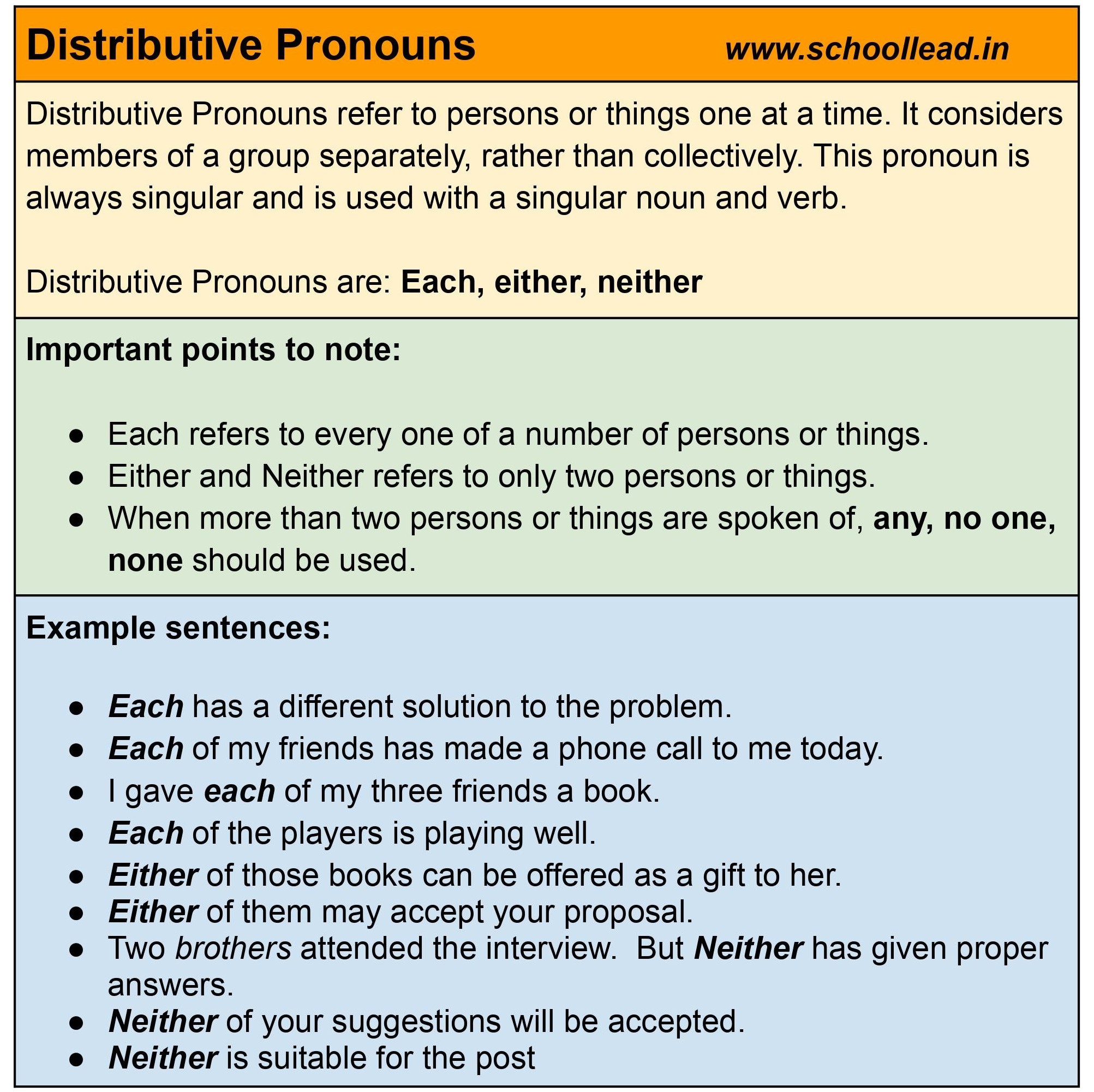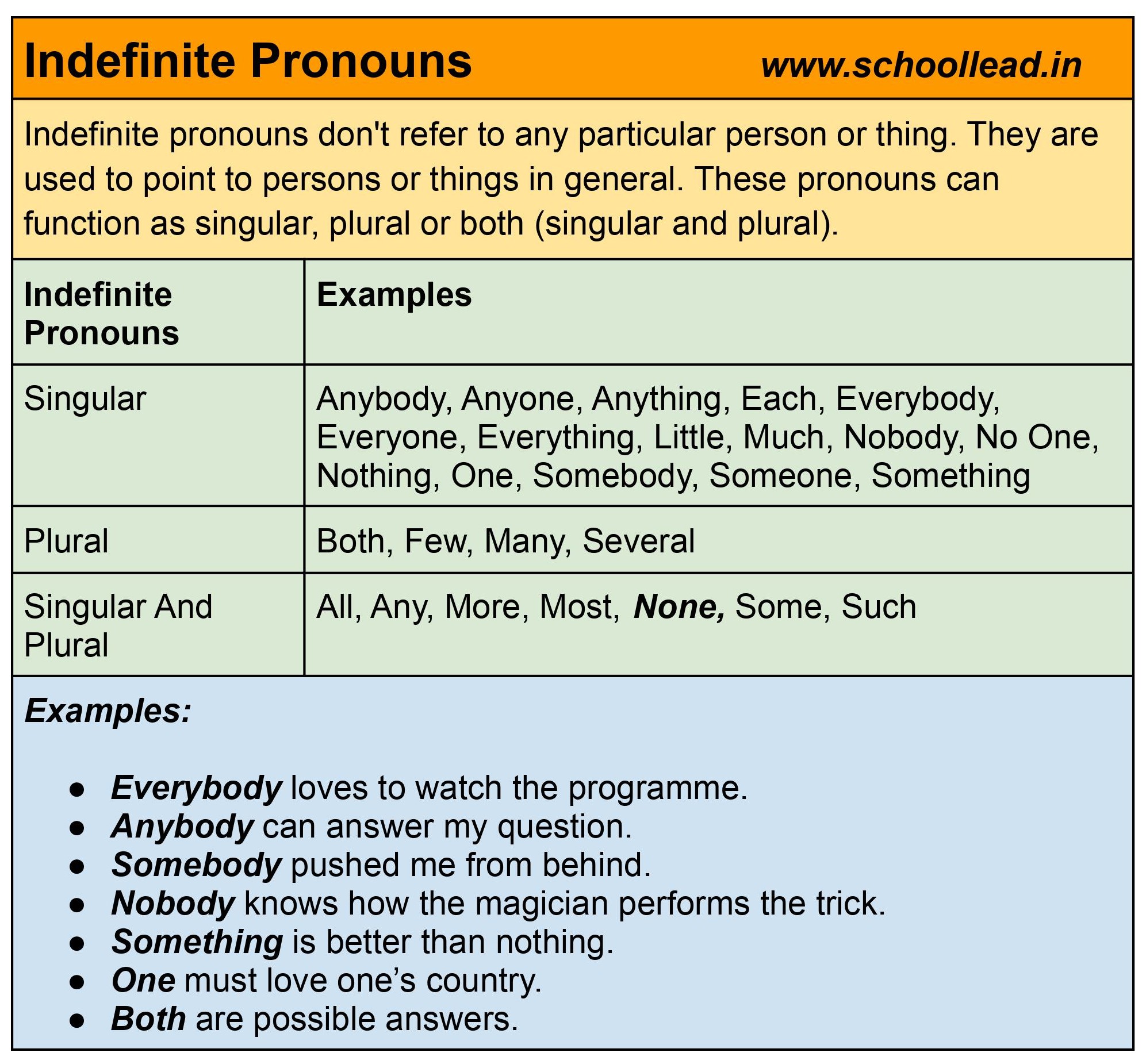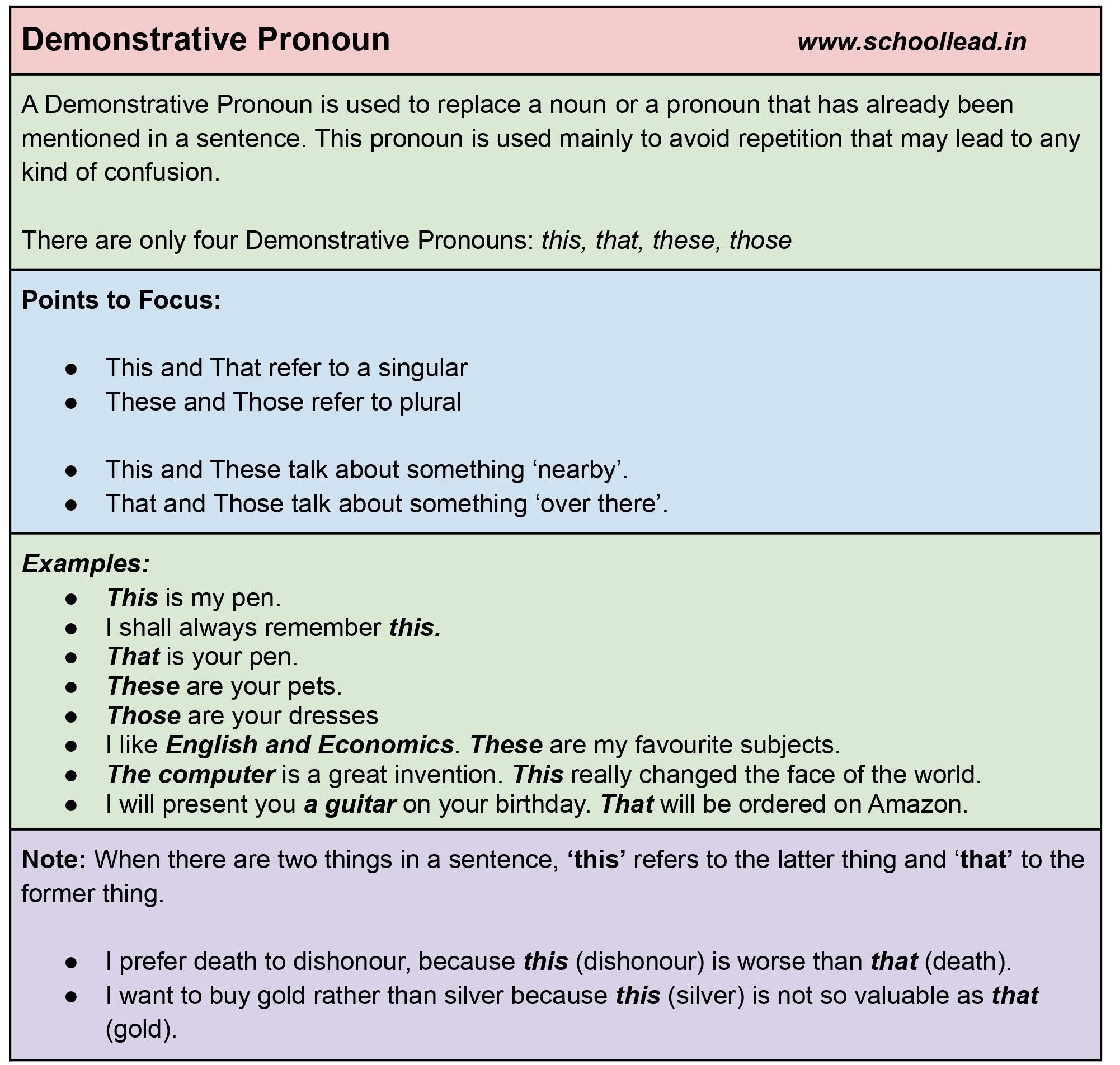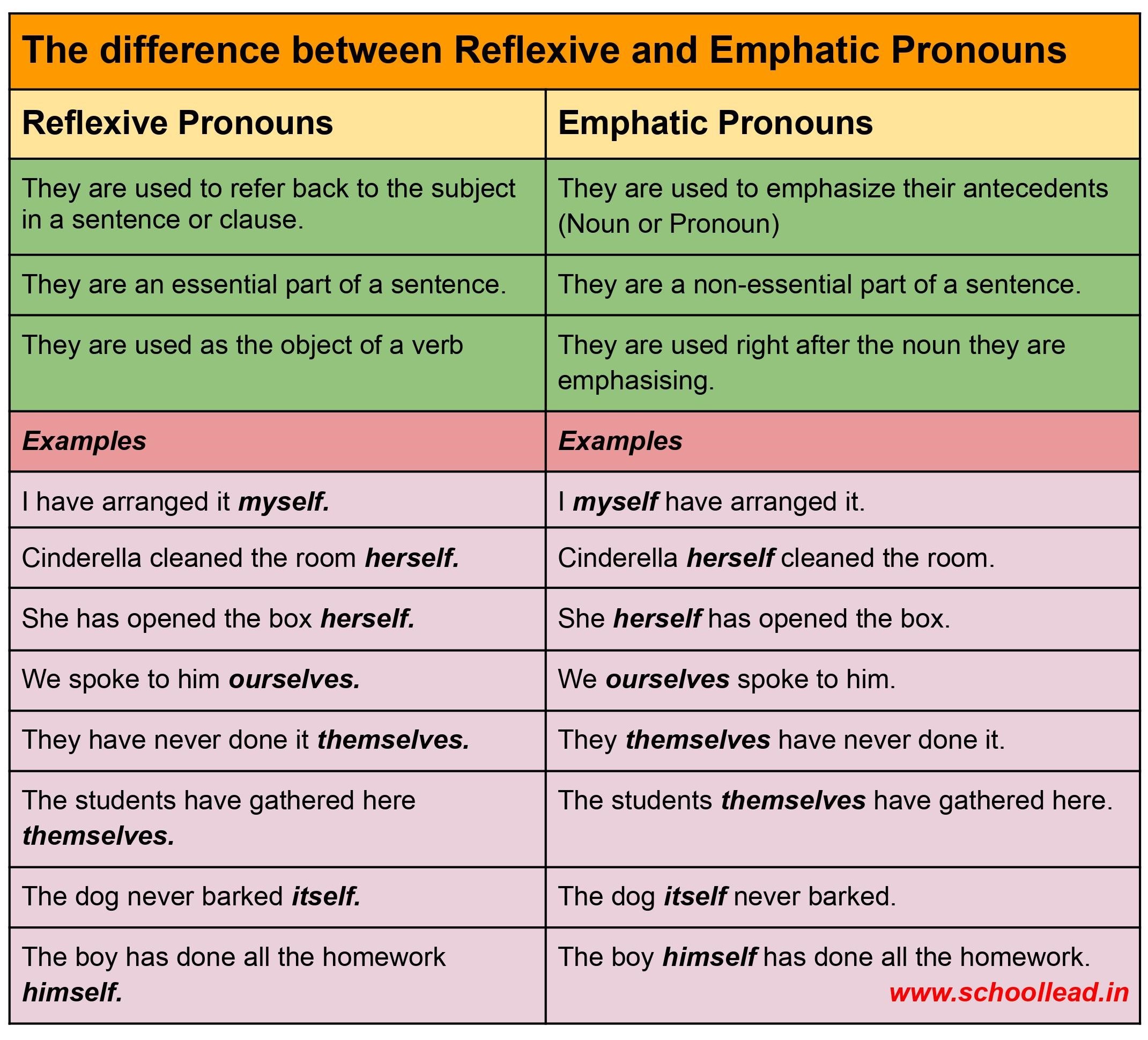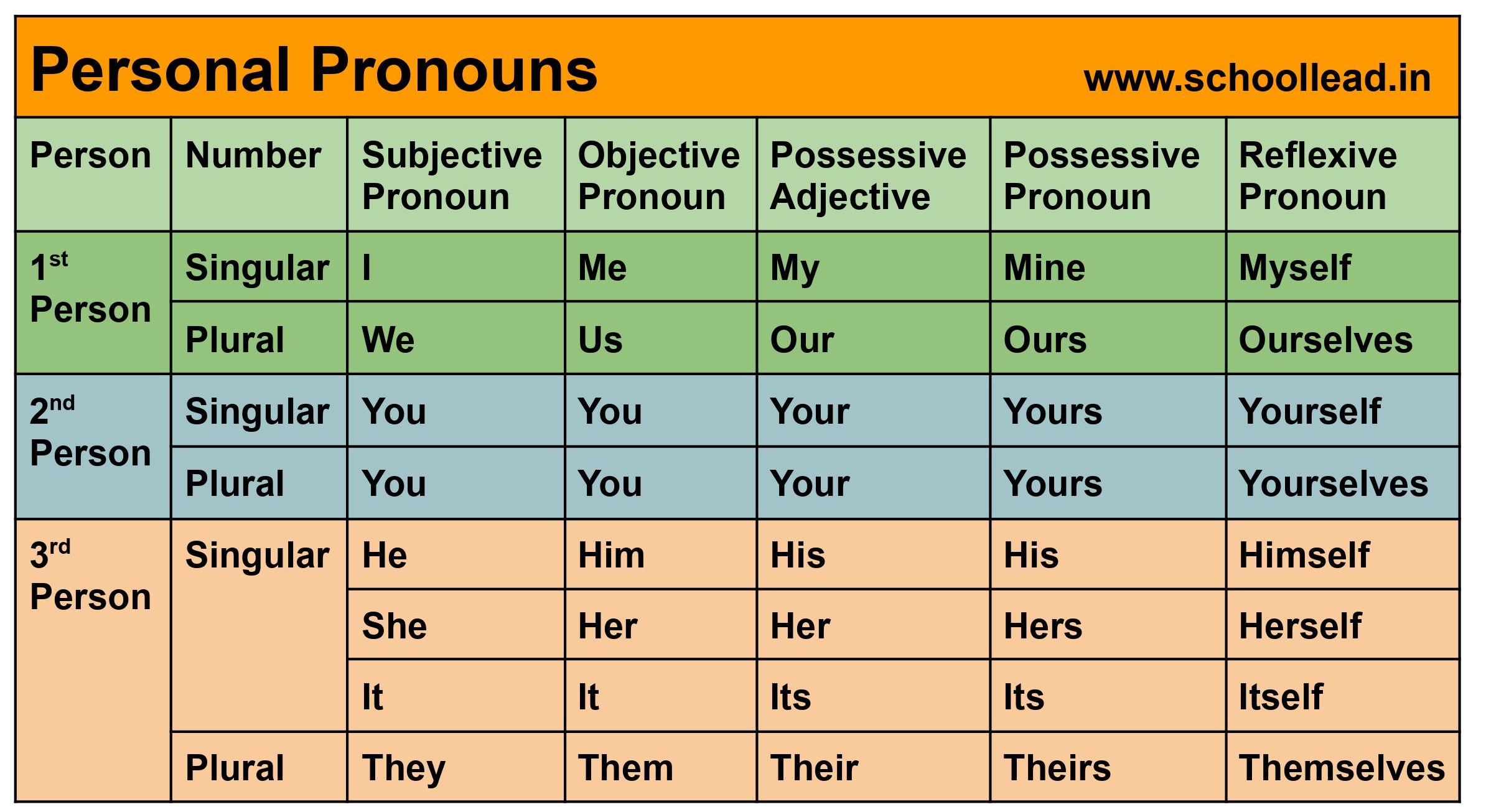Types of Pronouns What is a Pronoun: A Pronoun is a small word that is used in place of a noun to avoid the repetition of nouns. Every pronoun must have a
10.00 am - 06.00 pm +91 9866101718 contact@schoollead.in
Need study abroad support? Get In Touch
Uses of Pronouns: What is a Pronoun: A Pronoun is a small word that is used in place of a noun to avoid the repetition of nouns. Every pronoun must have a clear
Impersonal Pronoun ‘It’ When there is no possibility of using a clear subject in a sentence, we generally use ‘there' or 'it'. When we talk about material things, the word we use is
Exclamatory Pronouns The pronouns that are used as an exclamation (to express sudden emotion) are called the Exclamatory Pronouns. In the following sentences the word ‘What’ with the exclamation mark has been used
Interrogative Pronouns: Introduction: Interrogative Pronouns are used to ask a question. When we want to get any kind of information, the most usual way is to ask questions. So, we use Interrogative Pronouns
Defining and Non-Defining Relative Clauses Before we understand what defining and non-defining clauses are, it is better to have a clear idea of Relative Clauses. What is a clause? A clause is
Omission of the Relative Pronoun: Introduction to Omission of the Relative Pronoun: The Relative Pronoun introduces the relative clause and can be a subject or an object of the verb or the object
Relative Pronouns: What are Relative Pronouns? Relative Pronouns are used to join a clause or phrase to a noun or pronoun (antecedent) in the previous clause. The Relative Pronoun introduces the relative clause
Reciprocal Pronouns: Reciprocal Pronouns are used when two or more nouns express a mutual or reciprocal action in a sentence. The Reciprocal Pronouns are ‘each other’ and ‘one another.’ The main purpose of
Possessive Pronouns: Possessive Pronouns replace a noun with an apostrophe and "s" to show ownership or possession of a noun. These pronouns are mainly used to substitute a noun or a noun phrase
Distributive Pronouns: Distributive Pronouns refer to persons or things one at a time. It considers the members of a group separately, rather than collectively. This pronoun is always singular and is used with
Indefinite Pronouns Indefinite pronouns don't refer to any particular person or thing. They are used to point to persons or things in general. These pronouns can function as singular, plural or both (singular
Demonstrative Pronouns A Demonstrative Pronoun is used to replace a noun or a pronoun that has already been mentioned in a sentence. This pronoun is used mainly to avoid repetition that may lead
Personal Pronouns Personal pronouns are used in place of specific people or things that we are talking about. We use these Personal Pronouns keeping in view of the Number, Person, Gender and Case:


